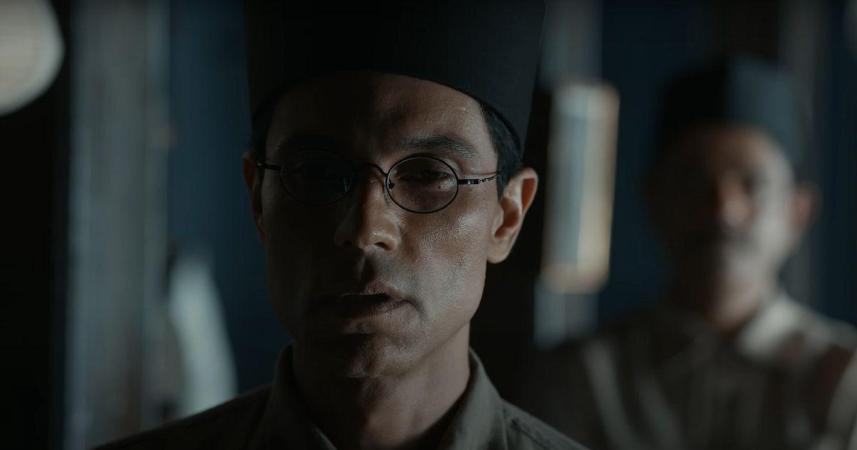‘Swatantrya Veer Savarkar’ movie review

In the midst of India's election season, the controversial figure of Vinayak Damodar Savarkar is brought back into the limelight through a sharply-slanted biopic led by actor Randeep Hooda. The film, spanning a lengthy 178 minutes, offers a portrayal of Savarkar that aligns closely with narratives propagated by the right-wing ecosystem, presenting him as a central figure in India's fight for independence and painting the Congress as the antagonist that denied him rightful recognition.
Hooda's portrayal of Savarkar is one of conviction, providing a nuanced depiction of a figure who evokes both admiration and disdain. The film delves into Savarkar's early years as a rationalist, his contributions to the nationalist cause alongside his brothers, and his efforts to establish an ideological framework for Indian independence through organizations like the Free India Society. However, it conveniently sidesteps or downplays aspects of Savarkar's life that might tarnish his image, such as his receipt of a monthly allowance from the British government post-prison release and the controversial incidents like the alleged ransacking of a mosque during his childhood.
One of the film's key omissions is its treatment of Savarkar's communal inclinations, either glossing over historical facts or presenting them in a favorable light. His alignment with the colonial authorities and his strategic maneuvers against the Muslim leadership are portrayed as pragmatic choices rather than motivated by communal sentiments. The film even goes as far as to imagine fictional encounters between Savarkar and other historical figures like Bhagat Singh, further blurring the lines between fact and fiction.
Hooda, who not only stars in the film but also directs and co-produces it, delivers a performance that captures the steely resolve of Savarkar, supported by strong performances from Ankita Lokhande as Savarkar's wife Yamuna Bai and Amit Sial as his brother Ganesh. However, the portrayal of Mahatma Gandhi as a conniving figure seems superficial, lacking depth and nuance.
Despite its shortcomings, the film effectively portrays Savarkar as a figure who inspired young minds and challenged the dominant narrative of non-violence advocated by Gandhi. It questions the efficacy of non-violent resistance in achieving independence and highlights Savarkar's frustration with Gandhi's approach, particularly his perceived appeasement of Muslims and support of the caste system.
Throughout the film, parallels are drawn between Savarkar and Gandhi, inviting the audience to compare their visions for India's future. While the film clearly seeks to exalt Savarkar, it does offer moments of introspection, providing insights into his grievances against Gandhi while simultaneously making a case for his own legacy.
In a surprising turn of events, the film concludes with a timid disassociation from Savarkar's assassination, leaving the audience to ponder the complexities of his life and legacy. Despite its biased narrative, the film offers a thought-provoking exploration of one of India's most polarizing figures, leaving viewers with much to contemplate.








.jpg)

-t-thumb.jpeg)